“I’ve been learning Python [a software programming language]. I even designed a game by myself last month!” Roshan (13) is enthusiastic about divulging details about his brainchild, ‘Target’. “First, the computer will give a number. If you can guess the number correctly, you win!”
This achievement goes well beyond a mere hat trick for Roshan’s parents and teachers. It is a metaphor for his diligence.
Three years ago, this eighth grader found it mind-boggling to string together simple sentences in English. He hadn’t ever seen a computer, let alone known how to operate one. So, when brand new, shiny laptops found their way into his village of Jharagogua in Odisha’s Deogarh district, Roshan was spellbound — and his peers were, too.
I can distinctly hear them jostling each other in a bid to ensure each of their voices comes through the phone clearly. They echo a similar sentiment, “We love learning new things on the computer. We can study Maths, Science, and English and also play games. We learn everything at the centre only.”
There is a moment of silence after my follow-up question, “So, what do you learn at school?” Roshan volunteers to answer, “Not much.”
His response finds backing in a report by the Oxford Human Rights Hub that directs attention to the Indian public education system, which “prioritises enrollment more than learning”. Its [the system’s] perspective is missing the point, the report implies, adding, “In many schools, the teachers are completely ignorant of the subject and the needs of the students, and learning involves the children copying down lessons from blackboards, a completely mechanical exercise with little educational benefit. Fourteen-year-old children are often unable to read texts, which a child of eight could be expected to read”.
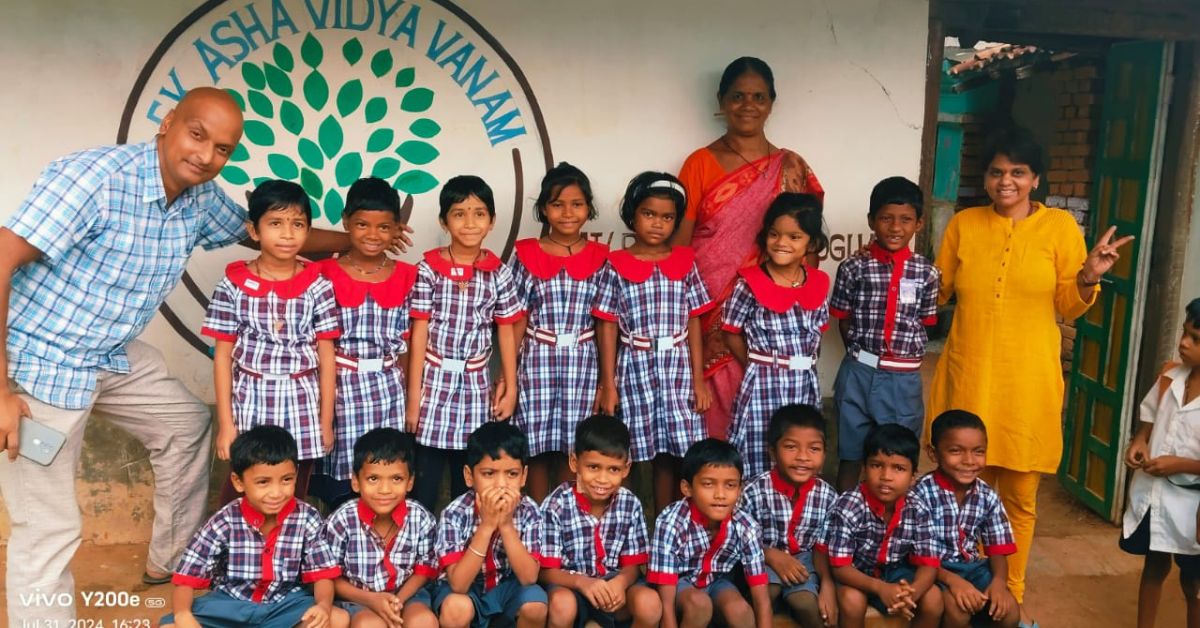
This ignites a fiery debate. How are hours allocated to schooling being spent? “We usually complete some homework,” Roshan pitches in. “The timetable has many classes, but there is only one class held every day. We don’t do much the rest of the day.”
Before letting his friends have their shot at the phone, he adds, “That’s why, when I grow up, I want to be like Sambit sir.”
Ek Asha: Transforming education in Odisha’s tribal regions
Though at the peak of his immigrant dream in 2014, Sambit Kumar Das (48), now founder of Ek Asha Trust, wasn’t quite content. Life was lucrative. But there was a gaping hole. That same year, a string of cathartic experiences, each almost feeling like a nudge from fate itself, compelled Das to quit his salaried role in the United States. He chose the hinterlands of Odisha as his destination to create an impact.
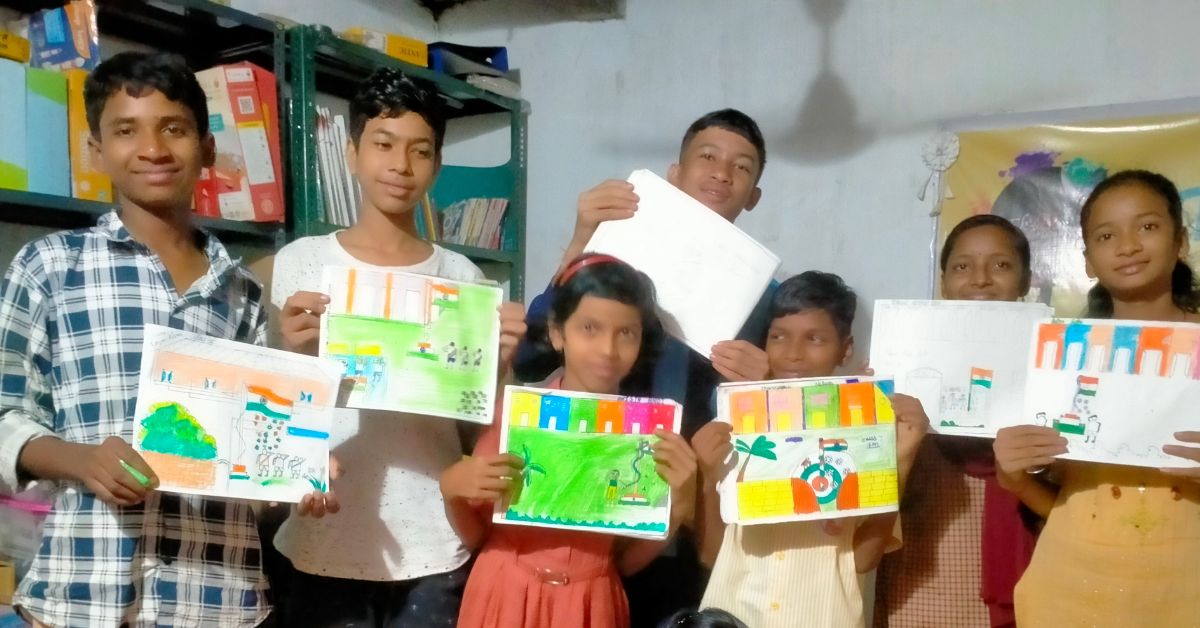
From 2014 to 2017, Das went on a journey of ‘self-discovery’ to find his larger purpose.
The culmination of those experiences is Ek Asha in Odisha. The non-profit is helmed by a group of volunteers — comprising professionals, educationists, and activists — or, as Das refers to them, “social architects”. Determined to veer away from traditional educational pedagogies that take pride in rote learning, they intend to impart “education that matters” — their target being children in underserved regions of Odisha.
Through a curriculum, which imbibes scientific temper and experiential mindsets in children, Das and his team are keen they be armed with skills that will hold good stead when they step into the thresholds of the real world.
“It has never been a level playing field,” Das observes of the Indian education system. “The focus has always been securing good jobs, but what about raising good human beings? I began to recognise the 21st century need to adapt our education system in both, rural and urban areas.”
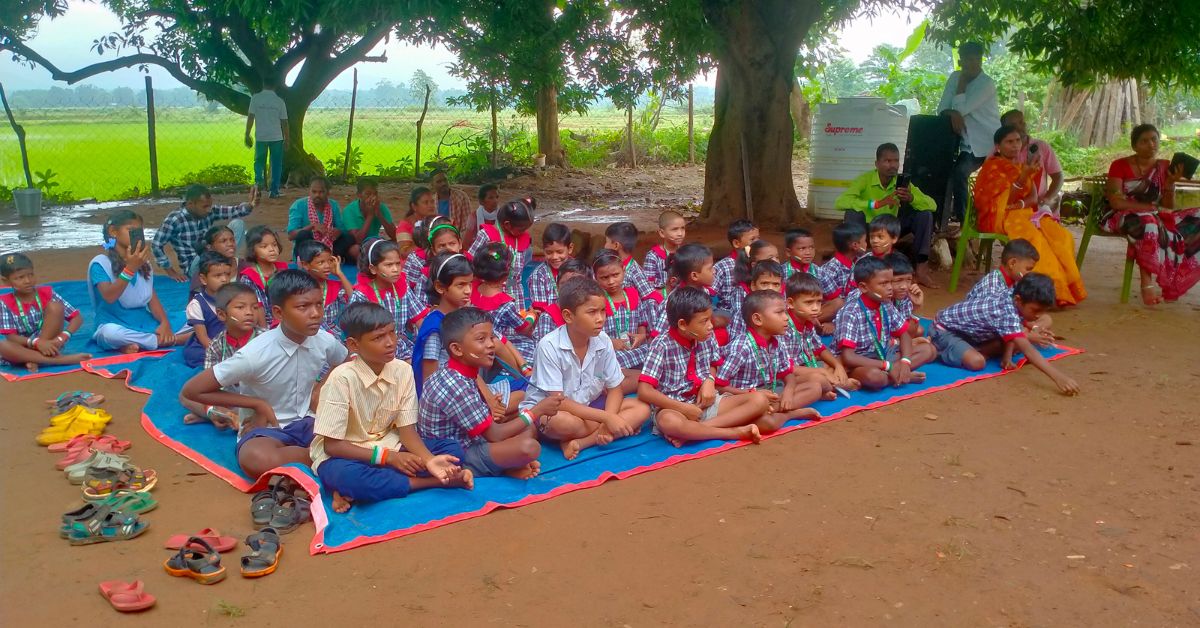
He continues, “The young generation’s biggest worries are about the next promotion or appraisal. My father drew a humble salary but yet gave to charity. I found that life is bigger than a corporate package.”
Das’ learnings are many-pronged, fertilising the off-shoots of Ek Asha’s endeavours. One of the four arms of the Trust is the Online Thinking Class (OTC) — a bridge that connects Classes 6 to 10 students from tribal belts of Odisha with volunteer teachers from across the globe who have mastery in a certain discipline. “We have doctors teaching biology, engineers taking STEM classes, geo-scientists teaching geography, mathematicians teaching Vedic Math, and artists teaching crafts,” Das elaborates.
This fosters critical thinking through enquiry-based learning, he adds. Currently, the OTC modules are present in seven villages in Odisha, benefitting over 120 students. Roshan and his friends are beneficiaries. They also profit from the TinkerLabs.
TinkerLabs and ThinkCenters: Empowering Odisha’s first-generation learners
Extending its reach to over 100 students, TinkerLabs sees creativity being brewed and ideas being given impetus. These multi-disciplinary activity labs are budding grounds for students from Classes 6 to 9 — encouraging them to extend their scope beyond academics and polish their knowledge of design, science, computers, robotics, electronics, painting, commerce and interpersonal behaviour. The infusion of technology has been crucial, Das observes.
Pooja (14) — a Class 9 student who has been studying at Jharagogua TinkerLab since 2022 — declares her dream to become a teacher. “I love how Haseena Ma’am teaches us English. My favourite subject is Algebra, but I also love reading story books.” Pooja shares her fascination with computers as well. “I came to know what a computer is for the first time at Ek Asha.”
In the video above, the volunteer is teaching the children an Odia song whose lyrics help the children learn arithmetic calculations that they can apply when dealing with small sums of money.
While the above programmes supplement children’s education, the ThinkCenters are fashioned on a slightly novel approach. They cater to first-generation schoolers. Present in 12 villages — Tainsar, Jareikela, Gailo, to name a few — these centres address the needs of over 75 children from tribal communities.
“Schools are seen to be more of a safe place for children to get their stomachs full and spend the day while their parents, who are mostly daily wage labourers, work in the forest. There is a lack of adult supervision and guidance on education at home,” Das notices. He concedes that getting the children to agree to attend school is far from the only challenge, revealing that they would much rather while away their time in the forest. Retaining their interest is crucial.
To this end, the centres must make education fun. Along with an emphasis on fundamental academics — including Odia and English speaking and writing skills, maths, and environmental studies — there are also workshops focused on art and craft, drawing, painting, clay-idol making, sports, study tours, music, dance, and drama.
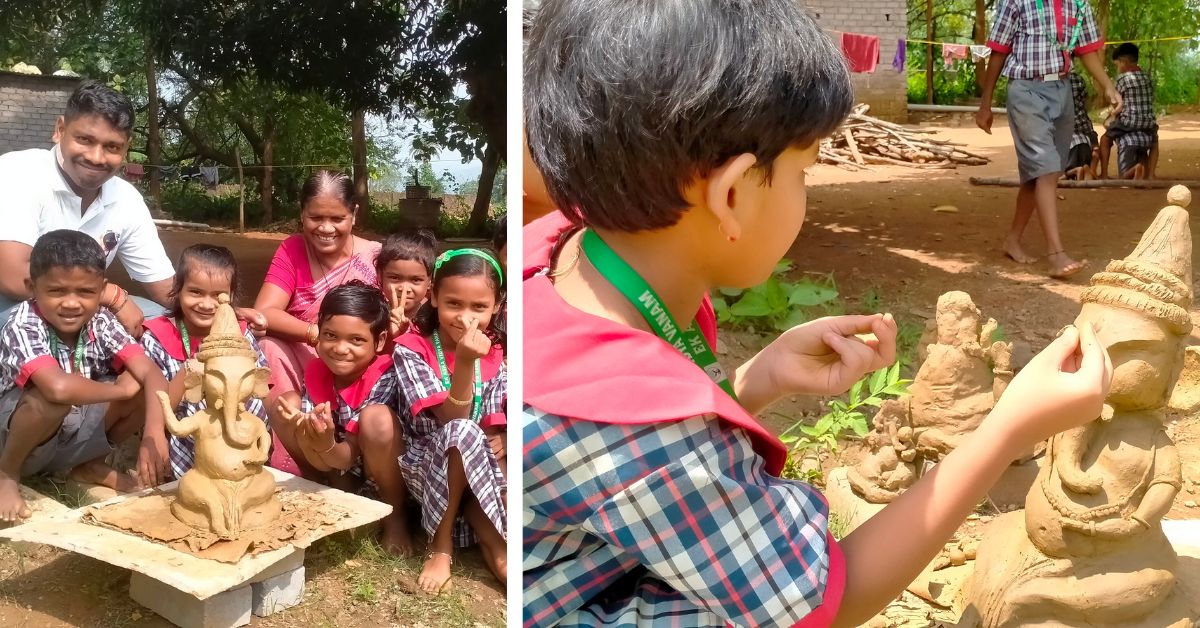
Reasoning that these children are products of a system where a lackadaisical attitude is normalised, Das says, “They aren’t used to sitting in one place. They love spending their day picking fruit in the forest. So, we need to ensure that our curriculum is as interesting.”
The Trust’s fourth and upcoming arm is the Gurukul school set on the 26-acre piece of land on Kailashghat Road in Deogarh district. “It won’t be a school confined to classrooms, textbooks, degrees or careers,” Das confirms. “Its holistic curriculum will ensure there are limitless possibilities open to the students.”
The residential school will have classes from 1 to 10. “There will also be a focus on Indian traditional arts, sports, scientific outlook and academics, innovative streams, skill and child development,” Das shares.
Techie-turned-teacher’s vision for education beyond marks
In 2014, when Das moved shores following his epiphany, he wanted to push beyond the boundaries of his prejudices. “I wanted to understand the problems that existed in education on the ground,” he explains.
Three years spent teaching in slums; visiting the remotest areas of Chennai, Bengaluru and Odisha; and pursuing a teacher training course to learn the nuances of the vocation left him confident about his undertaking, but heartbroken at the learnings.
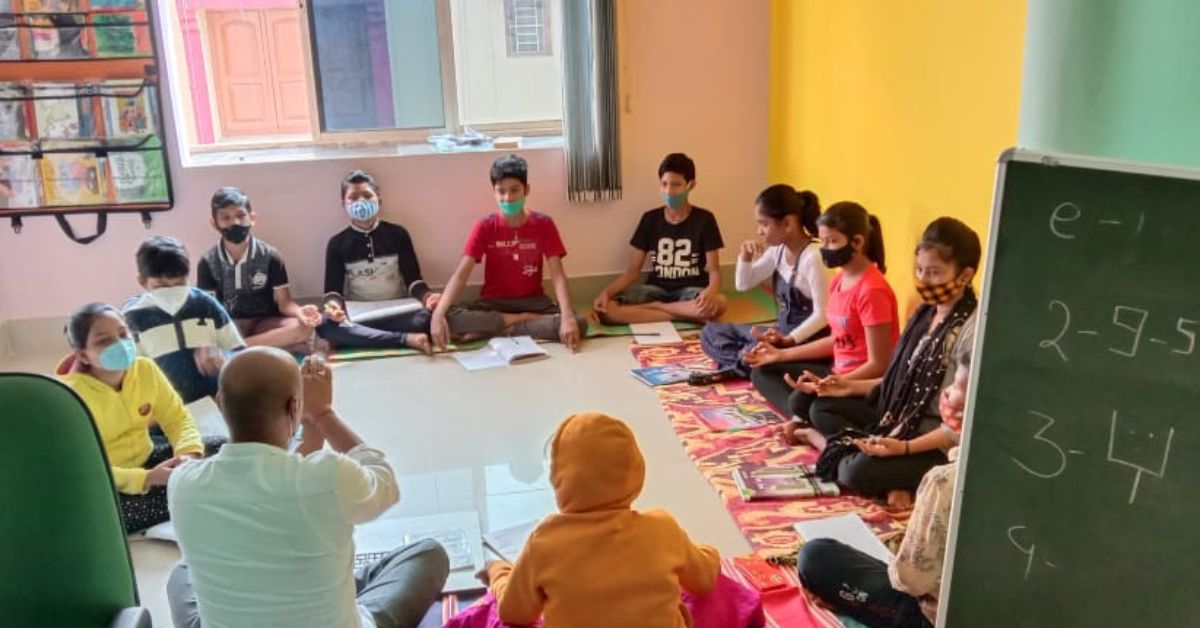
One incident during his sojourn left an indelible impact on his mind: Das was visiting a village in Odisha where a group of kids were familiarising themselves with simple English phrases, being taught to them by a volunteer. He overheard one of the elderly Odia women remark to the teacher, “Tumne inko padhaya toh hai, par sikhaya nahi (You have given them information, but you have not really taught them anything).”
She continued, “You teach our children and then they move to big cities. They never return. You teach them parlour skills and how to dye hair; things that are not a part of our culture. Our children slowly disown us and turn to alcohol.”
Was education achieving its desired impact, after all?
“When I spoke to the children in ashrams (hermitages) across South India, I was shocked that eighth graders couldn’t read and write in English.” The breaks and ruptures in the educational construct needed to be addressed through a one-stop solution, Das deduced. According to him, this means meeting the children where they are. Every child’s needs vary and so should the curriculum depending on the child in question.
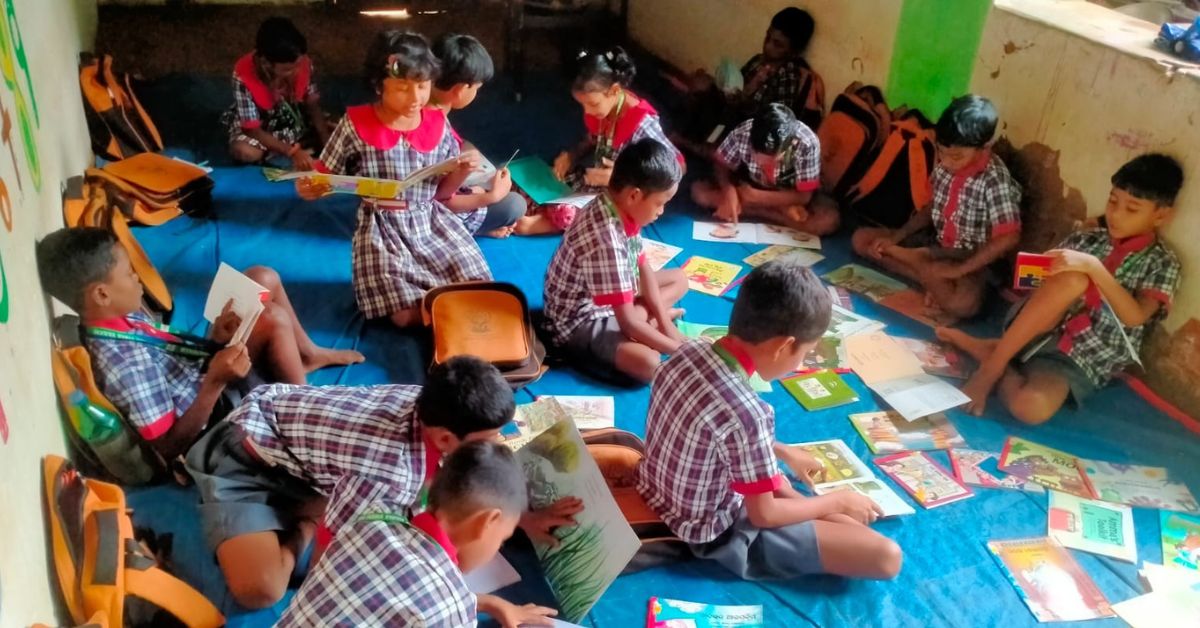
These observations form the bedrock of the curriculum at Ek Asha, Das shares.
“Not everyone might become a superstar in education but they must all become good humans. If time spent in the TinkerLabs helps them stay engaged and not take to drinking, they are bound to have a good family life. If honesty is instilled from a young age, they will have a higher moral ethic,” he adds.
Through Ek Asha’s modules, tricky concepts like geometry find a simple explanation in the design of flower petals; meanwhile, weekend study tours give children the leeway to observe, partake and increase their understanding of their cultures through visits to museums and heritage sites.
Ek Asha’s curriculums, while satisfying children’s curiosities, seek to dismantle the rhetoric that mainstream education upholds — that marks are the only benchmark of academic excellence. As Das points out, “For a society to rise, every single individual in it must rise first.”
Edited by Pranita Bhat; Pictures source: Sambit Das
No comments:
Post a Comment